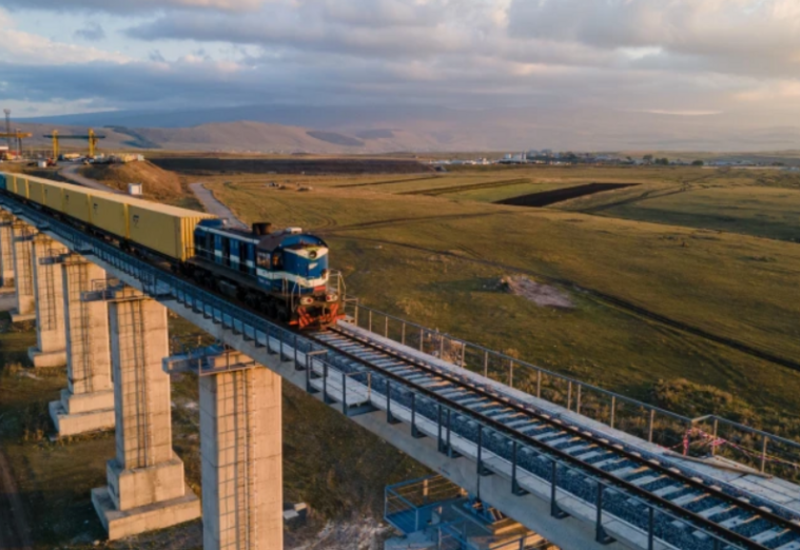|
|
TODAY.AZ / World news
New changes in Arab world map
03 April 2012 [08:19] - TODAY.AZ
 One of the most talked-about topics is recent statements of the Kurdish administration about creation in northern Iraq of an independent "Kurdish state" and major difference between central government and the administration on economic issues.
One of the most talked-about topics is recent statements of the Kurdish administration about creation in northern Iraq of an independent "Kurdish state" and major difference between central government and the administration on economic issues.The head of the Kurdish administration in northern Iraq, Massoud Barzani, announced his intention to proclaim on March 21 this year, an independent "Kurdish state". Despite the fact that the proclamation of a "Kurdish state" was expected in the specified time, for some reasons it did not happen. The head of the administration told TV "Al-Shargiyya" Kurds are subject to oppression in the region, but sooner or later, the Kurds will also have their own state.
"All I have said is reality, the Kurds are not worse than the Arabs, Persians or Turks. Kurds as a nation are divided in territories of several states, they were not provided an opportunity to create their own state," said Barzani. He also added that the Kurds are waiting for the proclamation of the state.
Statements of Barzani seem not to be taken seriously, but if we look at events taking place recently in the country's economic life, it becomes clear that these statements are far more serious than it might seem.
Thus, the Kurdish administration without the consent of the Government signed an agreement with the U.S. Exxon Mobil for exploration and production of oil in the administration's territory. Once the central government of Iraq announced the agreement illegal, Exxon Mobil temporarily suspended its operations in northern Iraq. And on April 2 the Kurdish administration has stopped oil supplies to the central government of Iraq. Government of Barzani explained the move by the fact that central government owes them $1.5 billion.
Such a concurrence of events once again shows that in order to declare an independent "Kurdistan" and leave the zone of influence of the central government, the government of Barzani will not only carry on a political struggle, but will also use the means of economic pressure.
The most interesting statement amidst these events came from the central government of Iraq. A source told Trend that the Kurdish administration is illegally exporting oil. It is also noted in the statement that cessation of oil export to Iraq was a significant blow to the budget of the Kurdish administration, and if the administration is not concerned about it, so it replenished its budget from the sale of oil by alternative means.
Taking into account the fact that Kurdish administration is landlocked and the unstable situation in neighboring Syria, we can see that the only alternative for oil export is the territory of Turkey.
But it does not mean that the Kurdish administration will always use Turkish territory to access the sea. We can assume that the only reason for the fact that Barzani has not declared yet a "Kurdish state" and that the Party of Democratic Unity (Partiya Yekîtiya Demokrat) at a meeting of opposition in Istanbul unlike other political groups did not support the agreement to protect the territorial integrity of the country, is to gain time.
It is not excluded that Government of Barzani will proclaim an independent "Kurdish state" after the departure of Bashar al-Assad from power and the beginning of the struggle for "independence" of Kurds living in the north of Syria. And it is one of the important steps to split Iraq.
Of course, it is not quite correct to think that there is a political activity of only Kurds in Iraq. Enhancing of the Iranian factor in the face of Shiite Muslims since the fall of Saddam's regime in the country suggests major changes in the region in the near future, namely the creation of a new Shia state.
As strange as it may be, serious steps in this direction have already been taken. Some Arab Shiite thinkers believe in the inevitability of the establishment of a "new Shia state" in the region after the political crisis in Bahrain. All this gives grounds to say that there may be new states in the Arab Middle East, albeit somewhat later.
/Trend/
URL: http://www.today.az/news/regions/104750.html
 Print version
Print version
Views: 4435
Connect with us. Get latest news and updates.
See Also
- 04 February 2026 [18:22]
Kazakhstan and Pakistan plan to boost trade - 04 February 2026 [15:38]
Second round of Russia–Ukraine talks opens in UAE amid escalating tensions - 04 February 2026 [15:17]
EU prepares 20th Russia sanctions package, Kyrgyzstan faces measures for first time - 04 February 2026 [14:00]
Indian carrier cancels flights to Tbilisi, Almaty, Baku and Tashkent amid Iran tensions - 04 February 2026 [13:51]
US special envoy visits Abu Dhabi ahead of Ukraine peace talks - 04 February 2026 [12:43]
Epstein files drag Simpsons creator into conspiracy storm over ‘predictions - 04 February 2026 [12:21]
First military friction emerges after US troop deployment near Iran - 04 February 2026 [09:00]
Spain to ban social media for under-16s - 04 February 2026 [08:00]
Singapore hosts top aviation show - 03 February 2026 [23:30]
Hubble sees NGC 7722 lenticular galaxy
Most Popular
 Zangezur corridor become part of TEN-T: European Union is joining fight for South Caucasus
Zangezur corridor become part of TEN-T: European Union is joining fight for South Caucasus
 US moving forces into Middle East - What comes next with Iran?
US moving forces into Middle East - What comes next with Iran?
 Pakistan says 48 killed in coordinated attacks in Balochistan
Pakistan says 48 killed in coordinated attacks in Balochistan
 The army is being taken away from Etchmiadzin
The army is being taken away from Etchmiadzin
 Slovakia PM adviser quits after Epstein messages surface in newly released US files
Slovakia PM adviser quits after Epstein messages surface in newly released US files
 Grain, fuel and politics of peace: How trade redrawing Armenia–Azerbaijan relations
Grain, fuel and politics of peace: How trade redrawing Armenia–Azerbaijan relations
 SOCAR, Huawei discuss digital transformation and advanced technologies in oil, gas sector
SOCAR, Huawei discuss digital transformation and advanced technologies in oil, gas sector
